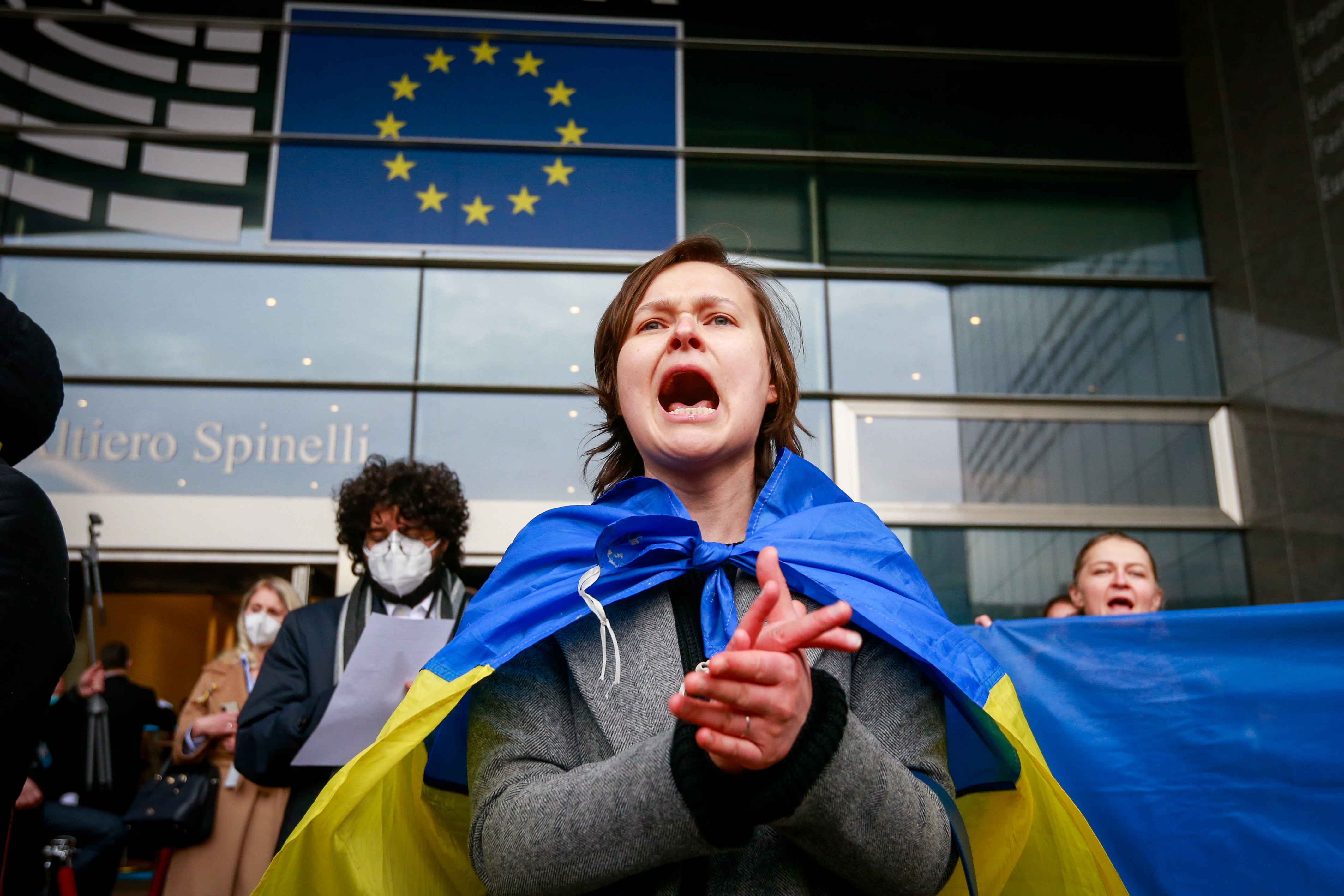Is Ukraine about to become the 28th member state of the European Union?
Zelensky wants Kyiv to align with Brussels once and for all – but could it really happen, asks Sean O’Grady


Is Ukraine about to become the 28th member state of the European Union? President Volodymyr Zelensky certainly wishes it were so, and has made a formal application to join, using an as-yet non-existent fast track process.
The circumstances demand such an approach, because Ukraine may not be in a position to apply for anything if it ceases to be an independent nation.
The EU has little in the way of a defence or security role, but the move would be a symbol of the desire to align Ukraine with Europe and the west, rather than looking eastwards – and some would add, backwards – to Russia.
Zelensky pleaded his case: “We ask the European Union for Ukraine’s immediate accession via a new special procedure. Our goal is to be together with all Europeans and, most importantly, to be on an equal footing. I’m sure it’s fair. I’m sure it’s possible.”
He has the full support of EU Commission president, Ursula von der Leyen, and, after a powerful address by Zelensky via video to the European parliament, won a near-unanimous backing from MEPs. Most former eastern bloc and USSR republics now in the EU, such as Bulgaria, Czech Republic, Estonia, Latvia, Lithuania, Poland, Slovakia and Slovenia, have added vocal backing.
But even if it were approved in principle, membership might not happen for months because it requires the unanimous support of all 27 existing members. Hungary seems more hesitant about annoying Russia, but it is French and German scepticism that are the two more substantial blocks to fast membership. The EU would be accepting a new member that is at war, and has disputed borders, is not in control of its own territory and is in danger of collapse.
Brussels is also conscious that the tilt to Europe in Ukrainian policy doesn’t carry the enthusiastic support of all Ukrainians, and was part of the background to the present divisions in the country, even before Russian interference and occupation.
Nor does the EU relish having an even longer direct border with Russia and its puppet, Belarus. In more normal times, there would also be legitimate concerns about corruption and governance and Ukraine’s level of economic development. It is also a relatively large nation, with a population about the size of Spain – with voting power to match – and would certainly alter the bloc’s power dynamics. Like other candidate members such as Albania and Serbia, it would need to be more politically and economically stable before it could make a practical transition.
So there’s little chance of Zelensky’s bid succeeding. But should it? Times are clearly different now, and this isn’t about Ukraine adopting the euro or trying to fit into the common agricultural policy. It’s about politics and solidarity. Historians may be reminded of Winston Churchill’s last-minute bid to form a political union between Britain and France in 1940, just before the collapse of the fourth republic, so that France would live on as an independent combatant in the struggle against Hitler, even as its government moved to London. Ukraine needs all the support it can get at the moment.
However, it is also true that Putin would use EU expansion for propaganda purposes, portraying it as evidence of a long-term western plot. There are more practically useful things the west can do right now, such as supplying military and humanitarian aid, and waging an effective economic war on Putin.



Join our commenting forum
Join thought-provoking conversations, follow other Independent readers and see their replies
0Comments